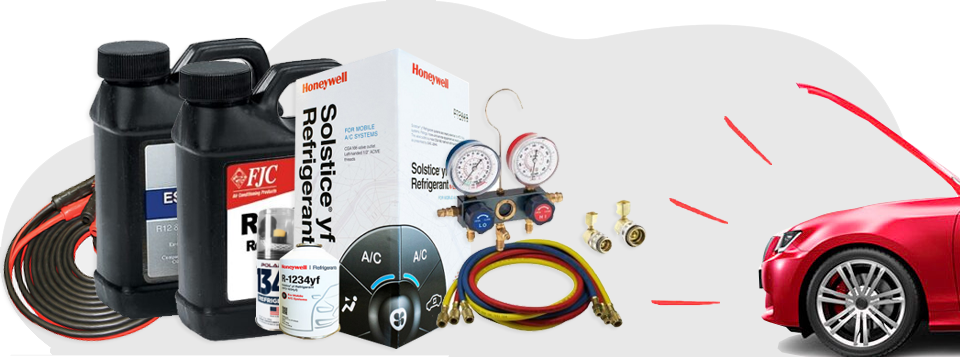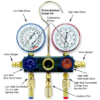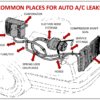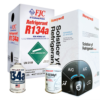Is it Normal for my Car’s A/C to Freeze Up?


No. No, it’s not.
A properly functioning vehicle air conditioning system is absolutely crucial to maintaining a cool and comfortable interior cabin, especially during the heat of summer. That’s why when things start to go wrong, we are so impatient to get it back to peak performance.
Unfortunately, the A/C is often a “forgotten system” under the hood that people don’t generally consider until it fails. One way the system can “fail” or decrease in output is when the lines freeze up, causing a cycle with periods of warm air until the lines thaw again. How critical of an issue is this, and what exactly can be done about it? As with most issues, when you experience freezing A/C lines it is important to first determine the root cause.
The following are some potential reasons A/C lines may begin freezing up, in order of ease to remedy.
Low Refrigerant Charge
In order for your A/C to function well, there needs to be an adequate amount of refrigerant running through the lines. When a system becomes low on refrigerant, the freezing point becomes lower and may result in ice accumulation. If your refrigerant is low, your system has a leak, so make sure to use a refrigerant which includes a leak stop for rubber components when you add refrigerant.
Dirty or Clogged Cabin Air Filter, Condenser or Return Vents
An air conditioning system depends on air flow to work properly. If the air flow becomes impeded your coils may freeze and cause a build-up of ice. Remove the cabin air filter, hold it up to the light and if you cannot see through it then it is too dirty and needs to be changed. Similarly, a dirty condenser and any clogs in the return vents should also be thoroughly cleaned.
Faulty Fan Blower Motor
Frozen lines can also indicate that the blower fan has quit (this is easy to diagnose if there is no flow of air coming through the vents0. Reasons for this malfunction could be a dirty/clogged cabin air filter or just a blown fan motor from over heating/over use. A faulty blower fan can result in a lack of air flow which can result in your system freezing up.
Clogged Orifice Tube/Faulty Thermal Expansion Valve
Another potential cause of frozen lines is a clogged orifice tube or malfunctioning thermal expansion valve (TXV). Your vehicle will have one or the other of these, depending upon the make/model/year. These metering devices control the flow of refrigerant through your system. If an orifice tube becomes clogged, or a TXV malfunctions, an inadequate amount of refrigerant will pass through the system which can cause a freeze up.
Moisture
The most likely reason for a mobile A/C system to freeze is moisture. The only things that should be inside a car’s A/C system is refrigerant, oil, and with many later model vehicles, leak detection dye. The system is specially designed to maintain a tight seal to keep the system working as a closed loop. In addition to keeping the refrigerant and additives inside, the system also keeps undesirable contaminants such as air, moisture and dirt — out. When moisture is introduced into a system, the potential exists for the lines to freeze. Depending upon the system, freezing generally occurs at the expansion valve or fixed orifice tube, blocking the refrigerant flow.
In general, moisture can only enter the system through a leak—generally from rubber components which have shrunk, dried or cracked, or damage to the metal components through corrosion, a collision, or similar vehicle damage.
If your car AC lines are freezing up, you (or a professional tech) will need to remove the moisture that’s causing it. After performing leak detection, recover the refrigerant from the system and make any necessary repairs/replacements to parts such as O-rings, hoses, lines or evaporators. If the system has been opened for more than a few hours from an accident, damage or corrosion, the receiver-dryer must also be replaced. It can become saturated when left exposed to the moisture in the air. Evacuate the AC system for about 30 minutes to boil off any moisture in the lines. Finally, recharge the system with the proper refrigerant, oil and a little ultraviolet dye for future leak detection.
LMK 2020






